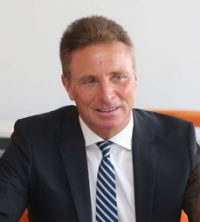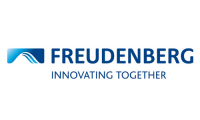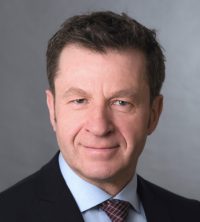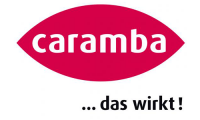Interviews
Some of the interviewees have changed careers in the meantime.
We are happy to establish direct contact with them.

Ralf Schmid, Senior Vice President
“kfu consultants don’t just offer standard sales training…”
Interview with Ralf Schmid on 5th Mai 2008
First of all, could you tell me what you personally expect from a consultation?
Ralf Schmid: A consultant must be completely reliable, offer premium quality and provide feedback on my managerial performance, the established goals and the chosen strategies. I regard the consultant as an intermediary between management and employees – with the aim of ensuring that all are acting together for the benefit of the company. In sales seminar in particular a consultant must also be an exceptional motivator.
What changes were you planning to make in your company at that time? And what approach did the kfu consultants take?
Ralf Schmid: The task at Freudenberg Simrit was not an alteration project. Rather I had identified the need for professional sales seminars, which was to help us to improve the collaborations with our clients.
kfu chose an exceptional route. And Mr Friedmann even took part in a field sales force conference. He had three hours in which to present the kfu approach and for workshops. I then asked which eight individuals would be interested in taking part in a sales seminar session in order to test the KFY method. All 35 field sales staff wanted to be involved! In my opinion it couldn’t have gone any better! It is ultimately about experienced changes.
Mr Friedmann made really excellent use of the three hours and my staff could clearly see the need to change their mindset and that they could learn a great deal with and from the kfu consultants. I didn’t need to do any more convincing. The clear appreciation that effective seminar would help us was pivotal in our subsequent success.
What effects did you notice following the kfu consultation?
Ralf Schmid: There were significant positive effects: a notable increase in motivation, improved confidence, more intensive preparation for sales negotiations, better outcomes, ….
In short: The kfu seminar sessions offer an exceptional return on investment!
What do you regard as the particular strengths of the kfu consultants?
Ralf Schmid: kfu consultants don’t just offer standard sales training. They also take into account the needs and perceptions of the participants and provide feedback. This is very important if change management is an objective.
Regarding the particular strengths of the kfu consultants, I have personally met Dr Knips and Mr Friedmann so far. Each has his own particular strengths as a consultant. Peter Friedmann was undoubtedly the correct choice for the sales seminar sessions as he enjoys a reputation in our company as a professional and expert in the field. As an engineer and former gasket purchasing manager he has an in-depth knowledge of our products and can draw on the necessary background knowledge. This meant Mr Friedmann was exactly the right man for us and he was accepted from the outset. Engineers don’t take kindly to being trained by psychologists or lawyers, you know! However, everyone at our company agrees that there is no better trainer than Peter Friedmann!
Do you also have any criticisms? Sometimes you only realise later that something should have been done better or differently.
Ralf Schmid: So far I have absolutely no criticisms. Perhaps just one observation: the preparation for the seminar is quite time consuming. In order to gather information for the customer use argumentation we had to carry out seminar workshops in advance with chosen employees. It is really time intensive but definitely worthwhile!
And to round things off, a glimpse of the future: are there other projects with kfu in the pipeline?
Ralf Schmid: Yes, definitely! The sales staff are already getting impatient and asking when the next seminar with kfu will be. SIMRIT will further expand its collaboration with kfu and will arrange seminar for East European as well as German employees in future in order to roll out the kfu concept over a broad front.
Within SIMRIT and beyond our borders word has got around about kfu’s excellent work. And Freudenberg Dichtungs- und Schwingungstechnik is also already aware just how efficient and successful kfu sales seminars is.
Many thanks for finding the time for this interview!


Thomas Stewing, Managing Director
“The meetings with the kfu consultants were a real experience for many staff members as it was often the case that it was the first time that they were asked for their opinion and were in a position to take influence on something!”
Interview with Thomas Stewing on 5th Mai 2008
Before we begin talking about the projects carried out by kfu within your company, I’d first like to ask which demands you make of a consulting company.
Thomas Stewing: For me it’s incredibly important that the consultants each set about their own analysis of the company’s needs. Of course each one will use a certain methodology, but this must be in a position to allow him or her to respond flexibly to the given situation instead of simply blindly applying the model. I particularly respect consultants who don’t just attempt to bash through generalised ideas and models, but who adjust their methods to the specific needs of the company surroundings.
I also expect the consultant to give me an absolutely honest feedback, however hard that might be. Only this way can one hope to build up the necessary basis of trust, essential when working with consultants.
Which change management project was on the cards at that point within the company?
Thomas Stewing: There wasn’t just one project but several. Why? TECHNICOL Chemie Holding GmbH is a young holding now heading up four companies: CARAMBA Chemie GmbH & Co. KG, TEGEE-Chemie Bremen GmbH, WIGO-Werk Kreuznach Chemische Fabriken GmbH and RUMLER GmbH & Co. KG.
As the Berner Group, to which TECHNICOL belongs, restructured its chemical works, a change management process was begun right at the very beginning. The reason for this was given by the departure of the long term managing shareholder of WIGO and CARAMBA. A real culture change was initiated as the company and its staff went through the transition from an owner-run to a management-run company. At the same time, both companies introduced modern management structures.
In September 2007, TECHNICOL’s area of activity widened as a result of the acquisition of TEGEE. Consequently, this also had to be integrated into the holding. Once TEGEE has been successfully introduced into the holding’s structure and the change management process for WIGO and CARAMBA has advanced, primary focus will move to the determination of strategy.
How did you become aware of kfu?
Thomas Stewing: I already knew kfu from my time as German Sales Director for Glasurit GmbH. Contact was maintained through various projects completed with kfu in the course of my time with BASF Coatings AG. It should come as no surprise then that as the above mentioned change management process was initiated, I sought further cooperation with kfu. On the basis of prior discussions, the first thing was to agree a business process analysis/optimisation project (BPA/BPO) for Bad Kreuznach (WIGO). The processes are to be analysed and more importantly, the staff there are to be included in describing and solving the problems. After successful implementation, we plumped for the same approach as in Duisburg (CARAMBA).
Did you look for offers from other providers? What were the reasons for choosing kfu?
Thomas Stewing: No, for the BPA/BPO. I didn’t shop around for alternative tenders but instead trusted in my previous positive experiences with kfu, experiences which have been collected through a number of other projects. Admittedly, I hadn’t yet completed a BPA/BPO with kfu, but I did know how the consultants worked and how people orientated their approach is. Exactly because change management processes are very people based and because “soft factors” are of such central importance, it was very important to me that kfu assumed this project.
How did the project progress with WIGO?
Thomas Stewing: The decision to carry out a BPA/BPO with kfu at Bad Kreuznach was made early on. Of course, the departure of the managing shareholder represented a caesura for the company. For this reason we waited for exactly this point before launching the project. The first step involved informing managers and staff in detail of the aims and approach of the project. Open communication had and still has top priority in this project.
Shortly after this, in May 2007, the kick-off took place. Participants were kfu consultants and the group of decision-makers (i.e. managers and shop stewards). Once again, aims, methods and approach of the project were presented in detail, this time by the kfu. Company processes were broken down into three parts and for each of these parts a project team was created. Immediately after kick-off, contents, decisions and project teams were presented to all staff in a company meeting.
Open communication is, as already mentioned, essential to this kind of project. The presence of management consultants and meetings behind closed doors can lead to rumour and unease, fear and rejection. All of this was avoided with the approach we took. Only this way was open, result-based team work possible.
The three teams began work in June 2007. At the beginning of each team meeting, management was represented in order to reiterate and underline the significance of the BPA/BPO for the future of the company. Following this, the teams were handed over to the kfu consultants.
Around 6 weeks later, the presentation of the results by the decision-maker team took place. Following these decisions, an intensive period of some 5 months of implementation followed. Some projects are still in progress and meanwhile further measures have been defined and stand before implementation. The entire time framework stretched over about a year. During the entire project phase, staff were informed on progress.
Was feedback given from the team members?
Thomas Stewing: Staff were highly motivated in the meetings and were keen to include themselves. I see this as positive feedback. The meetings with the kfu consultants were a real experience for many staff members as it was often the case that it was the first time that they were asked for their opinion and were in a position to take influence on something.
A big step for many team members was the presentation of results to the decision-makers on account on the unprecedented nature of the situation. After the first noted how appreciative their results and decisions were received, trust and confidence grew massively.
Were you able to determine positive consequences of the kfu consultation? What was achieved?
Thomas Stewing: The goal was and is to change the culture of the company; a very ambitious goal which we’ve come an awful lot closer to achieving thanks to the project.
The catalogue of measures consisted of more than 60 action items and part projects in total, most of them to be managed by staff. The individual measures and part projects obviously have varying influence on company results. Some results are difficult to measure. Other measures, though, are in a position to provide concrete figures showing the success of the kfu consultancy. All in all, one can say: the company has become significantly more successful.
How do you view the time and money invested by your company in the projects? Is it justified?
Thomas Stewing: Yes, it is justified. At the start, on account of the kick-off meeting and the decision-maker meetings, my time commitment was quite intensive. And in the initial periods I asked for result reports frequently. In the second six months, as the measures only needed to be adhered to, my time commitment could be dramatically reduced.
At the start of this interview I asked you about expectations that you personally have of a management consultant. Have your expectations been fulfilled in respect to competence? And what, in your view, is the particular strength of kfu consultants?
Thomas Stewing: Yes, the expectations that I have of management consultants in general and of kfu in particular were completely fulfilled.
I was already familiar with the working methods employed by kfu consultants, though had not had the experience of completing a BPA/BPO with them. I must say: BPA/BPO is an excellent mode of accompanying a company through change management.
In contrast to other management consultancy firms, kfu consultants don’t just seek to apply a standard set of rules to the company to be advised. And they don’t leave their customers all alone in the important implementation phase, but always provide competent support. The kfu advisors manage to identify hidden staff potential and to increase the motivation of all concerned. As a result, a real feeling of positive change swept through the entire firm.
I’d like to mention here I found kfu consultants to be very open and honest in their description of the state of affairs. Exactly these frank descriptions and open feedback, whilst at the same time avoiding the passing-on of confidential information from the project team, is in my opinion solid proof of the exceptional mutual trust they enjoyed and fostered, and is the basis for such productive cooperation.
And my last question: are other projects with kfu in the pipeline?
Thomas Stewing: As TECHNIOCOL, as mentioned earlier, has expanded through a new acquisition, the beginning of 2008 saw the launch of a strategy finding process with kfu. The project should be completed in autumn 2008. The strategy so defined will form the basis for the future direction of the Group, as TECHNICOL intends and will continue to grow through further acquisitions.
The need for change is very closely linked to the concrete acquisitions. Whatever, we’ll direct our acquisition activity so that it will fit as well as possible to the kfu strategy. No doubt in future there will be further projects where TECHNICOL and kfu will cooperate.
Thank you for your time in this interview.


Dr. Michael Stumpp, Group Vice President
“Yes, my expectations have been completely fulfilled! kfu consultants bring with them lots of experience and the necessary pragmatism.”
Interview with Dr. Michael Stumpp on 14th April 2008
Before we begin talking about the projects carried out by kfu within your company, I’d first like to ask which demands you make of a consulting company.
Dr. Michael Stumpp: For me personally, it’s important to maintain perspectives which aren’t usually available within a company or one’s own daily business. The ideal consultant must look at problems from another perspective, through a wide angle lens, as it were. If this were otherwise, I would be able to solve the problem myself from within the company and I wouldn’t need an external consultant.
On selecting a consultant, obviously the type of project is important. If it’s about formulating a theoretical strategy, a different type of consultant would be required than if the company had set itself the goal of change management.
When I choose a consultant, it has to be someone with experience, someone who proceeds professionally and demonstrates a measure of pragmatism. There are many consultants who even in fields such as change management restrict themselves only to theory – such consultants are hardly likely to be useful in terms of implementation!
An important point with respect to the current project was, as I see it, that the consultation didn’t only include pure management but also distribution staff and that it also included effective support through the implementation. And with respect to change management it’s essential to have a consultant who’s accepted by all parties involved.
Did you have offers from other consulting companies before making your decision for kfu? What reasons were there for your choosing kfu?
Dr. Michael Stumpp: In accordance with BASF company policy, several offers are always sought. Within the company, we have a special department concerned only with consulting, accreditation of consultants and responsible for terms of cooperation. This department together with the business unit then decides which consultant gets the contract. The kfu offer was almost as if tailor-made to our requirements, and this was a decisive reason for our decisions for kfu.
Were you involved in the decision-making process?
Dr. Michael Stumpp: Yes, I recommended kfu – because of the positive experience I already had of the company and because of the tailor-made offer received from them. Their offer was not only one for pure management consultancy but also involved support with the implementation and the development of a distribution team.
How much contact have you had with kfu in the past?
Dr. Michael Stumpp: A number of years ago as I worked for BASF in the USA, a global project was implemented with kfu’s help. The project concerned improvement to the supply chain and increasing efficacy in cooperation between the parent company and the outlets outside Europe. This project with kfu wasn’t initiated by my department, but even then I appreciated the very pragmatic approach taken by the kfu consultants.
I asked about the personal demands you make of management consultants. Have your expectations with respect to competence been fulfilled?
Dr. Michael Stumpp: Yes, my expectations have been completely fulfilled! kfu consultants bring with them lots of experience and the necessary pragmatism. kfu consultants are always people with long-term experience of the profession. What they teach and advise they’ve been through and felt themselves first hand.
Another positive is that kfu is concerned not only to complete the consultancy in respect of product management but also with the distribution team. Mixed teams always took part in the workshops and this really has proved successful. What’s the use when management alone compiles a strategy when this can’t be implemented?
How did the business field analyses and strategies go? How did the project proceed?
Dr. Michael Stumpp: The approach applied by kfu really is excellent, and it really was textbook change management! It included all important points, starting from organisation and infrastructure right up to final coaching and change in mindset.
How did the project proceed? At the very beginning KSF visited BASF customers in order to collect feedback from them. The visits took place both in the presence and the absence of our distribution staff. Our customers should have the possibility of saying frankly and honestly what they think of the respective BASF department whilst at the same time maintaining their anonymity. They could talk of problems and identify strengths and weaknesses. They also indicated their opinions as to competition and where BASF stood in relation to this competition. On the basis of such informative customer feedback, we were able to assess our value proposition. The individual BASF distribution staff were given personal feedback from kfu as to how they were perceived by customers as part of an individual interview between kfu and the staff member.
The results of the customer feedback came at the very beginning of the actual analysis. I felt that beginning with the customer was a very good approach. The customer feedback gave us an excellent basis against which we were able to determine our direction.
The analysis took place in workshops in which marketing and distribution participated. We analysed business fields together and asked ourselves what areas we wished to concentrate on in future. The corresponding customer segments were then worked through and the rules for market cultivation. Finally the value propositions were formulated in the individual segments with the corresponding value cards and these were then passed on to BASF distribution staff.
How much time did the business field analysis take?
Dr. Michael Stumpp: All in all the process stretched well above a year. After defining the various business fields, each was then looked at in detail. I must add here that at the beginning of the project we stood before the reestablishment of our global business unit. We had to restart in synthetics: from commodities to specialities. We gave ourselves around a year’s time from reorganisation, consistently and successively implementing the recommendations received.
You must have had concrete expectations in respect of the results of the consultation. Have these been fulfilled?
Dr. Michael Stumpp: Obviously you look at the concrete results of any consultation – and I can certainly say that thanks to the consultation with kfu, we are better positioned and are more successful in Europe. Distributions, newly orientated toward business fields, works very effectively.
The important thing is to implement the strategy that’s been compiled. I estimate that we’ve currently implemented about 80%. This is considerable and kfu really has provided excellent support here.
How do you view your own personal time commitment in the project? Is it justified?
Dr. Michael Stumpp: I was present at all kick-off meetings and also tried, as far as my schedule allowed, to participate in the workshops. I was always informed by kfu directly of the outcome of the workshops. I was also sponsor for the steering committee in which all results from the workshops were presented, discussed and finally decisions were made with respect to how things were to proceed. Consequently I was always thoroughly up to speed. As with the workshops, the steering committee was also a mixed team comprised of staff from distribution and marketing as well as other fields, e.g. from the laboratories and production – depending on the topic.
My personal time commitment to the project was certainly justified. The time commitment at the very start was intensive; this then decreased through the course of the project and intensified again as the end decision phase approached. At the beginning, time investment was high on account of my involvement with the determination of aims and objectives and because I consciously decided to participate in workshops in order to see how things progressed, how the project was received by staff and colleagues and how they were involved in change management etc. Following that, I could withdraw a little. I was – as I’ve said – always kept very well informed through the kfu and the steering committee meetings. Decisions were then again taken by the bosses.
Were there times when your views and visions went in an opposite direction to those contained in team suggestions?
Dr. Michael Stumpp: Not really. The goals we set at the start with the corresponding recommendations and measures were all quite conclusive. There were no workshops in which suggestions were put together which were then completely rejected. Most of what was suggested was capable of being implemented and was in fact then implemented. During the workshops, various directions were discussed, though in the end it’s the responsibility of a good consultant to bring the workshop’s participants back on course.
How satisfied were your staff in the workshops with kfu consultants?
Dr. Michael Stumpp: The most delicate phase of the entire project came right at the very beginning with the first customer interviews. People are naturally first sceptical of an external consultant. Thoughts occur to you like “A consultant is following me to my customer, will judge me, and who knows what will happen with the comments.” But the kfu were very able to build up confidence in this very sensitive initial phase. And I myself didn’t hear a single negative word said about the kfu!
When you work together on a project for over a year, it’s imperative that the consultants are integrated. The buy-in and the acceptance that kfu consultants were shown right from the very first moment helped through the entire process. The kfu consultants were never looked upon as alien to the company, but were immediately fully integrated into our team, despite it sometimes being somewhat of a rough ride. An example would be the very first workshop, the “catharsis”, as it were, where no problem was out of bounds, where everything was discussed. At this workshop, the conscious decision was made not to invite management.
kfu really did manage to integrate very well – this is certainly one of the strengths of the kfu consultants. The pragmatic approach and the experience, not only as consultants but as professionals working in the relevant field – this is the key with which kfu consultants manage to win over participants at the workshops. There really were very open discussions; conflicts were mentioned though escalation was avoided.
How far has the message spread through BASF as to how well and with what approach kfu worked?
Dr. Michael Stumpp: kfu has already worked in several BASF departments. Our project was the biggest undertaken by kfu for BASF to date. According to the feedback I’ve received, awareness of kfu within the company has significantly increased.
Are further projects with kfu planned for the future?
Dr. Michael Stumpp: We are currently in the process of analysing a final business field in order to optimise organisation within this business field. We will then conduct a distribution development programme with value proposition workshops and value-added selling seminars.
Thank you very much for taking part in this interview.


Rolf J. Dürschmidt, Managing Director
“I expect that in around 3 years we’ll be able to say that with the strategy developed together with kfu, we have been able to set a milestone in our company history.”
Interview with Rolf J. Dürschmidt in November 2007
Before we begin talking about the projects carried out by kfu within your company, I’d first like to ask which demands you make of a consulting company.
Rolf J. Dürschmidt: For me it’s very important that a consultant opens up to our needs. He should identify our weakness and help us to help ourselves. I not only expect competent advice from the consultant but also that he accompany us in the implementation of that advice, wherever possible with practical examples. As I see it, the feeling that you’re being well looked after is also very important. A consultant shouldn’t only provide me with this feeling, but should also take care to ensure my staff has this feeling too. A consultant should also be in a position to broaden our personal horizons.
Did you have offers from other consultants before making your decision for kfu? What were your reasons for choosing kfu?
Rolf J. Dürschmidt: No, there were no other offers. I followed a recommendation from Mr Krottenthaler. Before he came to Feycolor, Mr Krottenthaler worked for BASF Coatings. He was very positive about the consultancy services provided there by kfu. I contacted kfu as I also intended having staff developed in distribution. Instead of a staff-seminar programme, a strategy then came into being.
Strategy?
As early as the first conversation with kfu, we recognised that staff development would be a sensible project, though not in a period through which the company was going through such quick upheaval. The first priority was to complete our strategic homework.
To what extent was the company going through a period of upheaval?
For strategic reasons, in the previous year we separated from almost 30% of the turnover. Affected were business fields which we’d kept for reasons of tradition, though were no longer consistent with our other activities. Now, the next step means focusing more intensively on expanding some fields of business and reducing others.
Is this already the result of kfu advice?
Rolf J. Dürschmidt: No, slimming down our focus was always on the cards. In November 2006, as the work with kfu began, we stood at a junction, as it were and had not yet taken the wrong path. Mistakes, which we certainly would have made, were avoided thanks to kfu. Thanks to kfu, we’ve completely rethought our strategic planning and chosen a completely different starting point. We no longer take the product as the root of consideration but the market. I’d like to quote Mr Friedmann here:
“We shouldn’t have one bait and ask ourselves which fish are likely to be attracted, rather we should provide the bait which the fish likes to eat.”
I have asked about your personal expectations of a consulting company. Have these expectations been fulfilled in respect of the competence shown?
Rolf J. Dürschmidt: Yes, and I remain fully behind my decision for kfu. The chemistry was right from the very start; from the very first conversation with Mr Friedmann it was clear that I wasn’t talking to someone only versed in theory, but to someone who speaks from a practitioner’s perspective.
I informed the company head of the strategy devised together with kfu by means of a presentation. The presentation was received very well by the company, primarily on account of the new approach starting from the market and market attractiveness. We are a very technically orientated organisation and this “fish needing the right bait” motto was for us exactly the right phrase.
We are now in the middle of the implementation phase with respect to this strategy, though trail a little behind in terms of time. This, however, all has good reason: one of our strategic business fields currently offers us a unique chance which we cannot miss. Admittedly we’ve fallen a little behind on the implementation of our new strategy, though we are increasing turnover much quicker than planned, and this despite us not accepting certain customer requests but rather – pursuant to the strategy worked out with kfu– refusing them.
How did the business field analyses and strategies go? How did the project proceed?
Rolf J. Dürschmidt: The team was made up of 10 to 12 persons, mainly from distribution teams from the company’s coatings operations. We went into the first meeting with kfu basically unprepared and determined the site of the markets by estimating their size. I’d like here once again to quote Mr Friedmann: “Better roughly right than detailed and wrong.” In a quiet moment, I took the time to properly work out the size of the market. Our estimations were right 90 percent of the time! This is considerable and makes clear just how well our distribution specialists know the market.
The approach of kfu consultants was predictably simple: We began by considering the markets in which we’re active, what position and what opportunities for development there is for us in these markets and what the competition is like. The results were entered into a matrix “Market attractiveness – own position”. This matrix functioned as the evaluation criterion against which we defined the markets in which we want to grow in future.
It’s a simple technique which for me as managing director has a positive side-effect: The results are simple and can be conveyed plausibly. The goals defined with the help of kfu documentation could be communicated to the entire team without a problem.
And good communications have a positive effect on mood within the company. Together with kfu, we set ourselves the summit of the Himalayas as goal, but before reaching this point, there are several stops along the way which first have to be achieved. That motivates people! Thanks to plausible kfu documentation, even the waverers can be convinced and filled with enthusiasm.
Could you see positive effects subsequent to the market cultivation?
Rolf J. Dürschmidt: Together with the kfu, we came up with such a positive growth prognosis that we questioned this on several occasions. At the beginning we asked ourselves whether we should better adjust the prognosis downward – after all, the company is measured against such predictions. We then decided to communicate the prognosis we came up with! And at the moment, it looks as if we won’t have to worry about generating the turnover predicted. As a result of the positive development in respect of turnover, we rather have to concern ourselves with things such as whether we can increase staff accordingly and whether new machines will be delivered on time.
With respect to all the opportunities we see, we ask ourselves the question whether they fit into our newly defined strategy. The answer we give ourselves is more often than not in the negative. We take care to be consistent here and then refuse the additional burden, even where our success should later cease as a result. For that, success is more intensive. In the past, we made strategic business decisions on gut feeling alone. It makes a difference though, whether I do something right as a matter of gut feeling or – thank to kfu– I have figures and reports as a basis. These “documented considerations” are worth a lot when you’re moving down new roads and when decisions have to be taken.
I expect that in around 3 years we’ll be able to say that with the strategy developed together with kfu, we have been able to set a milestone in our company history.
How do you perceive the time and cost of your company in such projects? Is it justified?
Rolf J. Dürschmidt: Yes it is. Up until now we’ve invested 11 days with up to 12 staff. This is not something you do if you don’t expect anything back!
The sum invested in total is actually above the amount which I may actually spend, but Mr Friedmann presented kfu’s approach to my boss Mr Lozser so convincingly that I was given the go ahead with kfu.
Like many medium-sized companies, we too are short of resources in terms of staff for the implementation of the strategy in accordance with the time plan set. As a result of the market situation, we hardly have time to catch our breath. But as I always say: better slowly and well than quickly but badly.
Are there further projects with the kfu?
Rolf J. Dürschmidt: Yes, in the field of “company-wide strategic purchasing” there’s room for improvement. kfu has already been awarded the mandate for this project by my boss, Mr Lozser.
My personal experience has shown that one is very much involved in operative daily business. I would like that kfu continue to accompany us with our strategy. Given the special dynamic of our market, I could imagine two strategy meetings per year. An excellent consultant such as Mr Friedmann provides a company with special impulses. Consultants for me are also bridge builders and agents between the fronts. Where certain topics are assessed by someone external to the company, better results are achieved.
Because of the group to which the company belongs, we’ll always work with several consultancy companies. Currently we’re focused on the project “team building in personnel”. We made a conscious decision not to use kfu here and have awarded the project to a consultant acceptable to the women at both company locations. In this case the woman to woman working relationship is better than a man- woman working relationship would have been.
What, in your view, are the particular strengths of the kfu consultants?
Rolf J. Dürschmidt: Mr Friedmann’s particular strength I see in the field of market strategy. His competence wasn’t only appreciated by me but also by my colleagues.
The chemistry between Mr Friedmann and myself was right from the very beginning. I’d like to mention here the numerous topical discussions which developed on the fringe of project work, for instance at an evening meal after a long meeting. One talks about everything, expands one’s horizon, as it were, through thought provoking discussion, and one or other good idea also comes from it.
I see the kfu as a signpost at the roadside. I have a goal, a vision and kfu shows me the way to get there. kfu is the motivational drive, not only for me, but also for my managers and the entire team.
I enjoy my job very much and kfu has helped to make it even more enjoyable.
Thank you very much for taking part in this interview.


